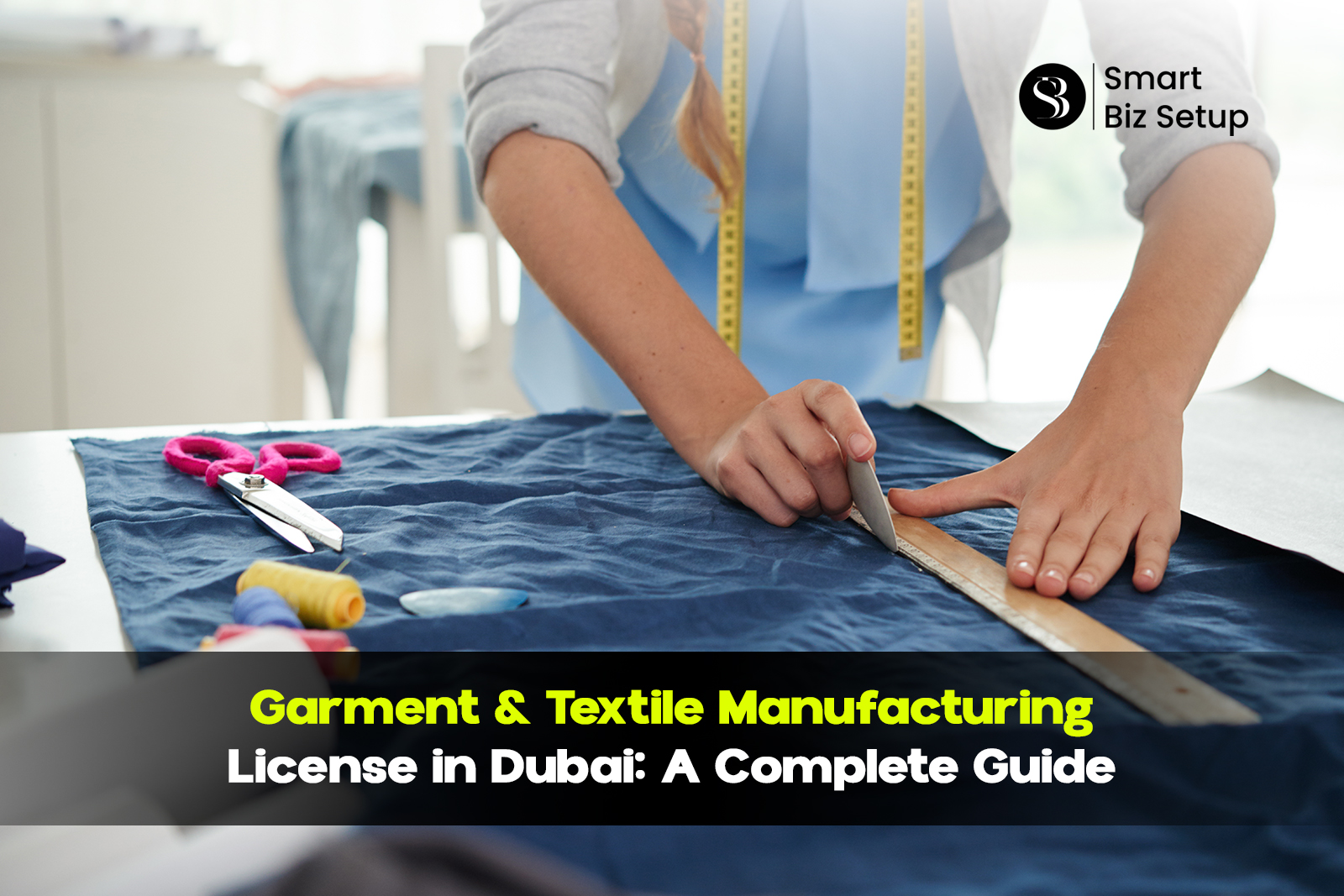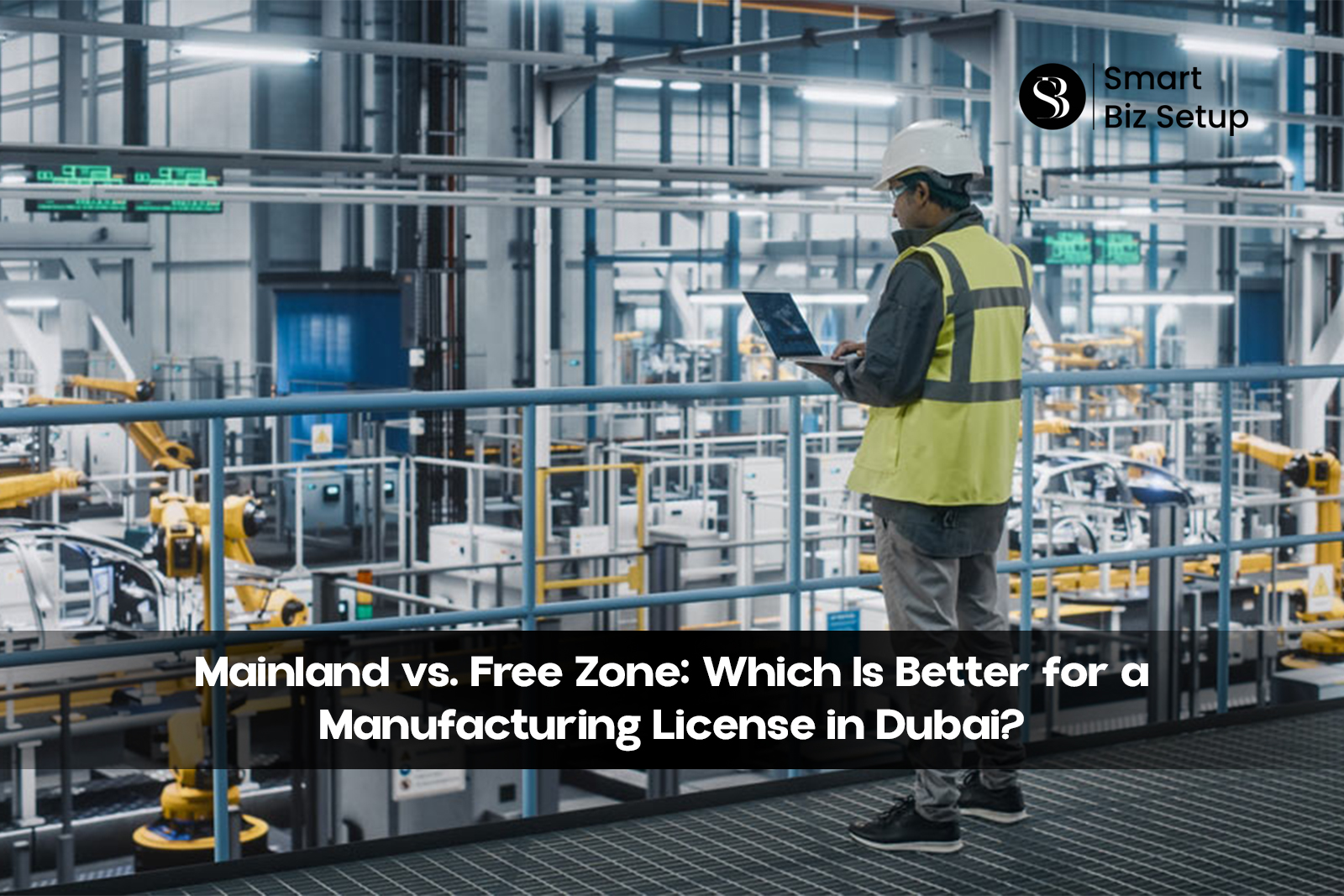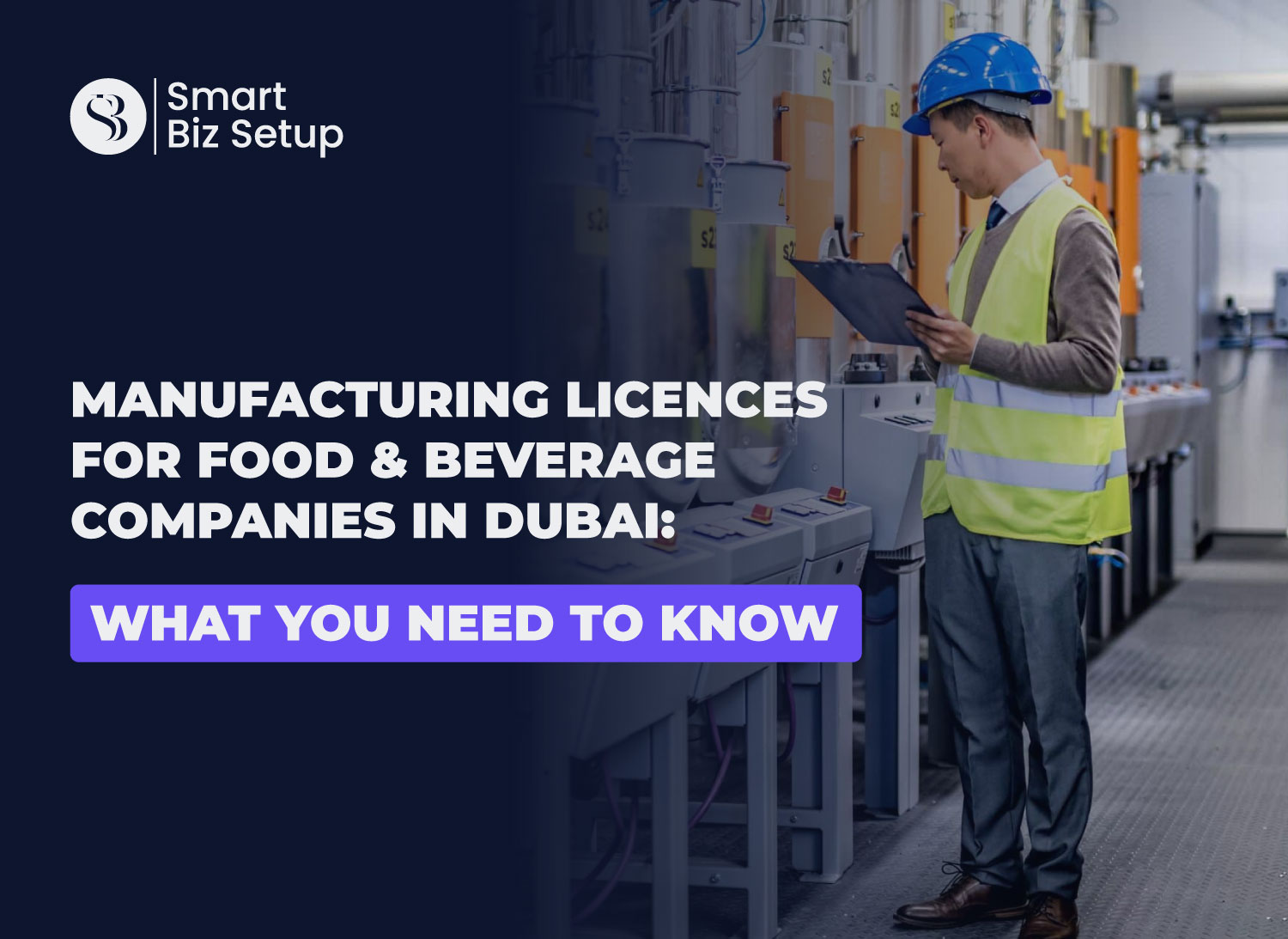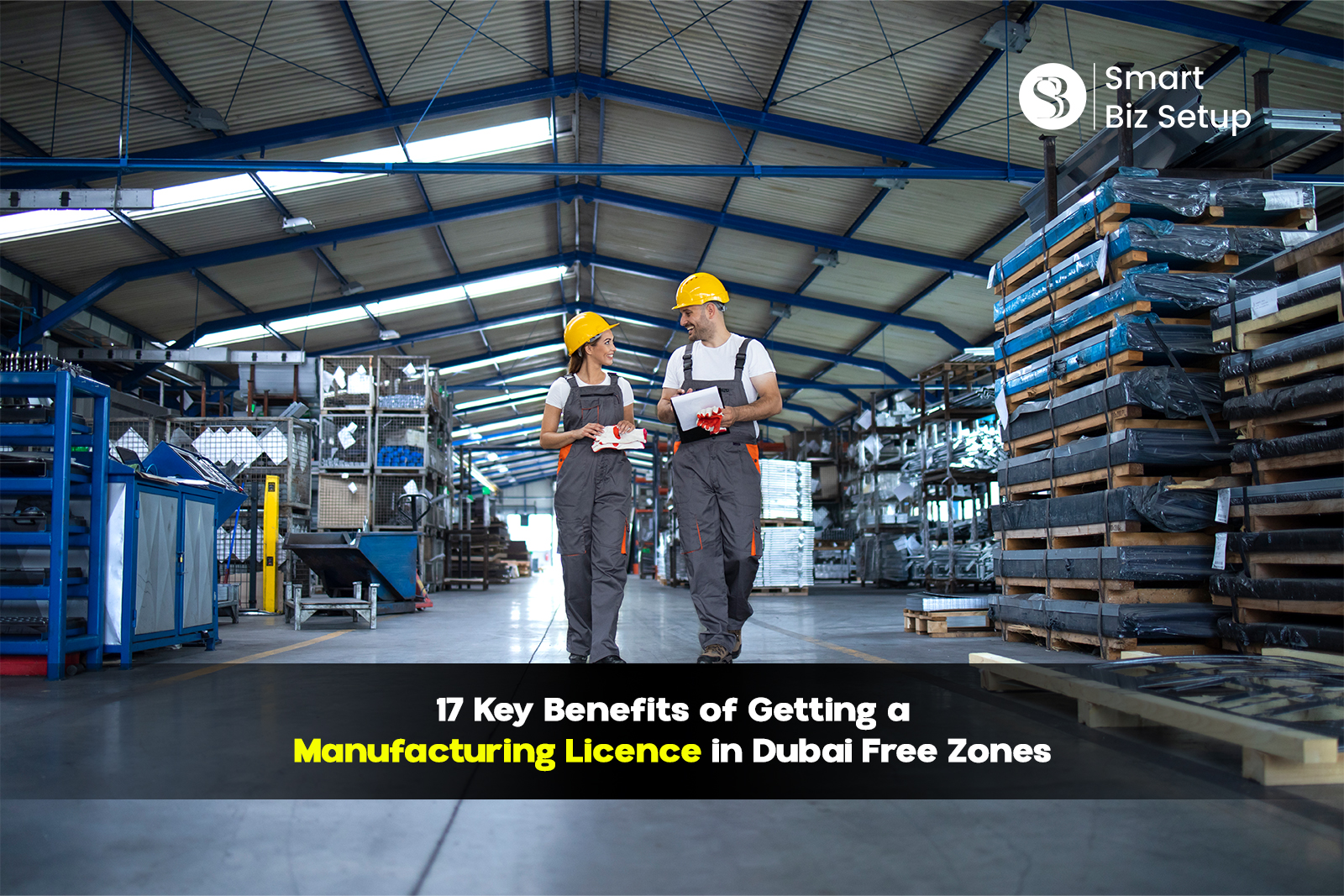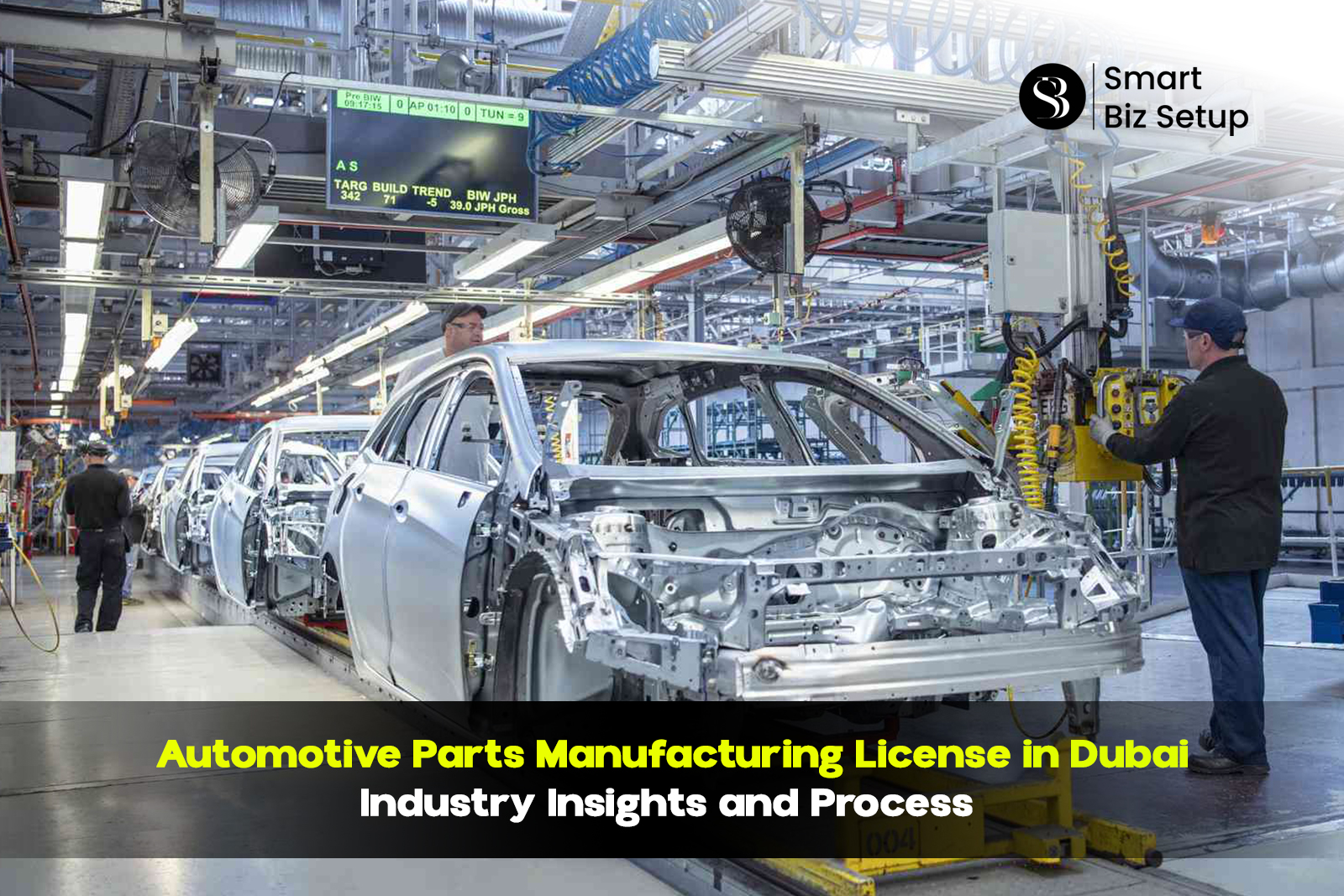Dubai, the thriving business hub of the Middle East, has established itself as a leading destination for industries ranging from technology to manufacturing. Among these, the food and beverage industry (F&B) stands out as one of the most dynamic and rapidly expanding sectors in Dubai. With its strategic location, modern infrastructure, and business-friendly environment, Dubai is an ideal place to set up a food manufacturing business or beverage production company.
However, starting an F&B business in Dubai requires navigating a comprehensive set of regulations and obtaining the necessary licenses, including a manufacturing license in Dubai. Understanding the food production approval process, compliance with UAE food safety regulations, and the role of local authorities like the Dubai Municipality for approval is crucial for success.
In this article, we will walk you through everything you need to know about obtaining a manufacturing license for food and beverage companies in Dubai, including food processing licenses, beverage bottling licenses, and the steps involved in complying with local food safety and hygiene standards.
1. Understanding the Manufacturing License for F&B Companies in Dubai
The first step towards setting up a food manufacturing company in Dubai is securing the right manufacturing license. The UAE industrial license is required for any company involved in the production, processing, or packaging of food and beverages.
A manufacturing license allows you to legally carry out operations related to food production, processing, packaging, and distribution. Depending on the type of food or beverage business you are setting up, this could range from small-scale food processing operations to large beverage production factories.
Types of Manufacturing Licenses for F&B Companies in Dubai
- Food Processing License Dubai: Required for businesses that process raw ingredients into finished products. This includes companies that manufacture canned goods, frozen foods, or other processed food items.
- Beverage Production License: Specifically for companies that manufacture drinks, including soft drinks, bottled water, juices, and alcoholic beverages (if applicable).
- Food Factory License UAE: This license is issued to businesses engaged in large-scale production of food products, including packaging and bottling.
- Food Factory Approval Dubai: This is required for businesses looking to operate large food factories in Dubai’s industrial zones or food processing zones UAE.
Obtaining a food manufacturing license in Dubai is vital as it ensures that your company operates within the legal framework and complies with local regulations and international standards.
2. Key Authorities and Regulations in Dubai’s Food Industry
To successfully launch your food manufacturing business, it’s important to understand the regulatory bodies and the approval process that governs the food and beverage industry in Dubai.
Dubai Municipality Approval
The Dubai Municipality plays a crucial role in regulating the food industry in Dubai. Before starting your business, you’ll need to obtain approval from the Dubai Municipality’s Food Control Department. They ensure that the business meets Dubai food safety standards, including food hygiene permits, and complies with UAE food safety regulations.
This approval is required for any food manufacturing business in Dubai. You will need to submit your business plan, facility layout, and product types to the Dubai food control department for review. The food hygiene permit in Dubai is one of the key requirements, as it guarantees that your manufacturing facility meets the sanitation and health standards required for food production.
UAE Food Safety Regulations
The UAE food safety regulations are designed to ensure that food products produced and sold in Dubai meet quality control standards and are safe for consumption. These regulations are enforced by the Dubai food control department and cover various aspects of the food production process, including food hygiene, packaging, labeling, and distribution.
Key regulations to keep in mind:
- Food Hygiene Standards: All food manufacturing facilities must adhere to strict cleanliness and food hygiene protocols. This includes regular inspections, employee training, and maintaining sanitary conditions.
- Food Labeling Laws UAE: The UAE has strict rules regarding food labeling to ensure transparency in what is being sold to consumers. Labels must include product ingredients, nutritional information, and allergens.
- Food Packaging Standards: All packaging materials used for food production must be compliant with the UAE food packaging regulations, ensuring that the food is protected during storage and transportation.
3. Understanding the Process of Company Deregistration and Closure
There are times when a company may decide to shut down operations. The process of company closures in Dubai is governed by a well-defined procedure, but it requires careful planning to avoid legal complications.
Steps to Follow for Company Closure in Dubai:
- Notify Authorities: Inform the Dubai Municipality and other relevant authorities about your intent to close down the business.
- Settle Debts and Liabilities: Ensure all outstanding debts with suppliers, employees, and government authorities are paid off.
- Deregister Business: Complete the company deregistration process, ensuring all necessary documents are submitted.
The professional services of UAE liquidation specialists can help streamline the process and ensure compliance with all regulations, preventing future liabilities.
4. Cost of a Food Manufacturing License in Dubai
One of the most common questions entrepreneurs have when setting up a food factory in Dubai is the cost of a food manufacturing license. While prices can vary depending on the scale and location of your business, Dubai food license costs generally range between AED 10,000 to AED 30,000, including the cost of inspections, registration, and the license itself.
However, there are additional costs to consider, such as:
- Rent and utilities for the food manufacturing facility.
- Employee permits and health certificates for staff.
- Food safety training programs for employees.
- Regulatory fees associated with the Dubai Municipality approval and food control department inspections.
These costs can vary depending on the type of food production business, so it’s important to plan your budget accordingly. It’s always wise to consult with Dubai liquidation consultants or UAE food safety experts to get a more accurate estimate of expenses.
5. Why Dubai is a Prime Location for Food Manufacturing Companies
Dubai has long been regarded as a business hub for entrepreneurs and multinational corporations, and its food and beverage sector is no exception. The city offers a variety of benefits for food manufacturing businesses, making it a prime location for F&B startups and established companies alike.
Strategic Location
Dubai’s location between Asia, Europe, and Africa makes it a central point for both importing raw materials and exporting finished products. This geographic advantage, combined with modern logistics infrastructure, makes Dubai an attractive option for food manufacturing companies looking to tap into international markets.
Supportive Government Initiatives
Dubai’s government has been highly supportive of the F&B sector, providing incentives for foreign investments, especially in food processing zones UAE. These zones offer tax breaks, reduced tariffs, and other incentives to attract foreign companies. Moreover, Dubai’s business-friendly policies make it easier for companies to set up and operate, with minimal red tape and quick processing times for licenses.
Strong Supply Chain and Infrastructure
Dubai has world-class infrastructure, including state-of-the-art ports, warehouses, and distribution centers. This makes it easy for food manufacturing companies to import raw materials and distribute finished products both locally and globally.
Growing Market Demand
Dubai is home to a growing population of both locals and expatriates, creating an increasing demand for high-quality food products. Additionally, the city is a major tourism hub, with millions of visitors coming every year, further driving the demand for diverse food and beverage products.
Navigating the Food Manufacturing License Process in Dubai
Setting up a food manufacturing business in Dubai can be incredibly rewarding, but it requires careful planning, adherence to local regulations, and the right permits. UAE food safety regulations, Dubai Municipality approval, and obtaining the appropriate food manufacturing license are all essential components of the process.
Whether you’re looking to start a small food processing business or build a large beverage production company, understanding the legal landscape and costs involved will set you on the right path. Working with Dubai food licensing consultants or UAE liquidation specialists can help streamline the process, saving you time and ensuring compliance with all necessary regulations.
Dubai’s food manufacturing industry continues to grow, driven by strategic location advantages, a supportive government, and a demand for quality products. By securing the right licenses, adhering to food safety standards, and capitalising on Dubai’s opportunities, you can build a successful and profitable business in one of the world’s most exciting markets.Are you ready to start your food manufacturing journey in Dubai? Contact Vista Corporate Group for expert advice on obtaining the necessary licenses and navigating UAE food industry regulations. Let us help you bring your food business to life in Dubai’s thriving market.





